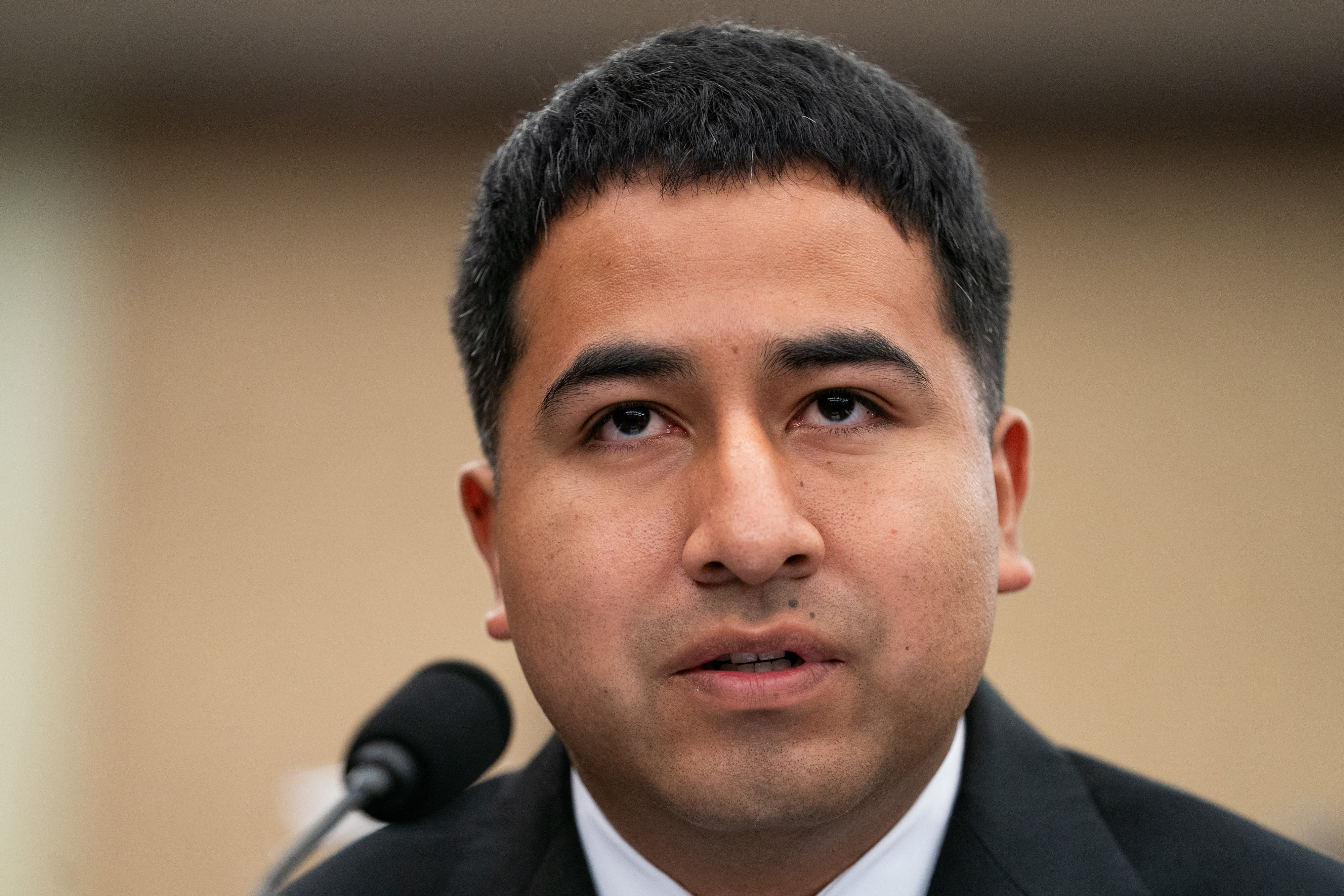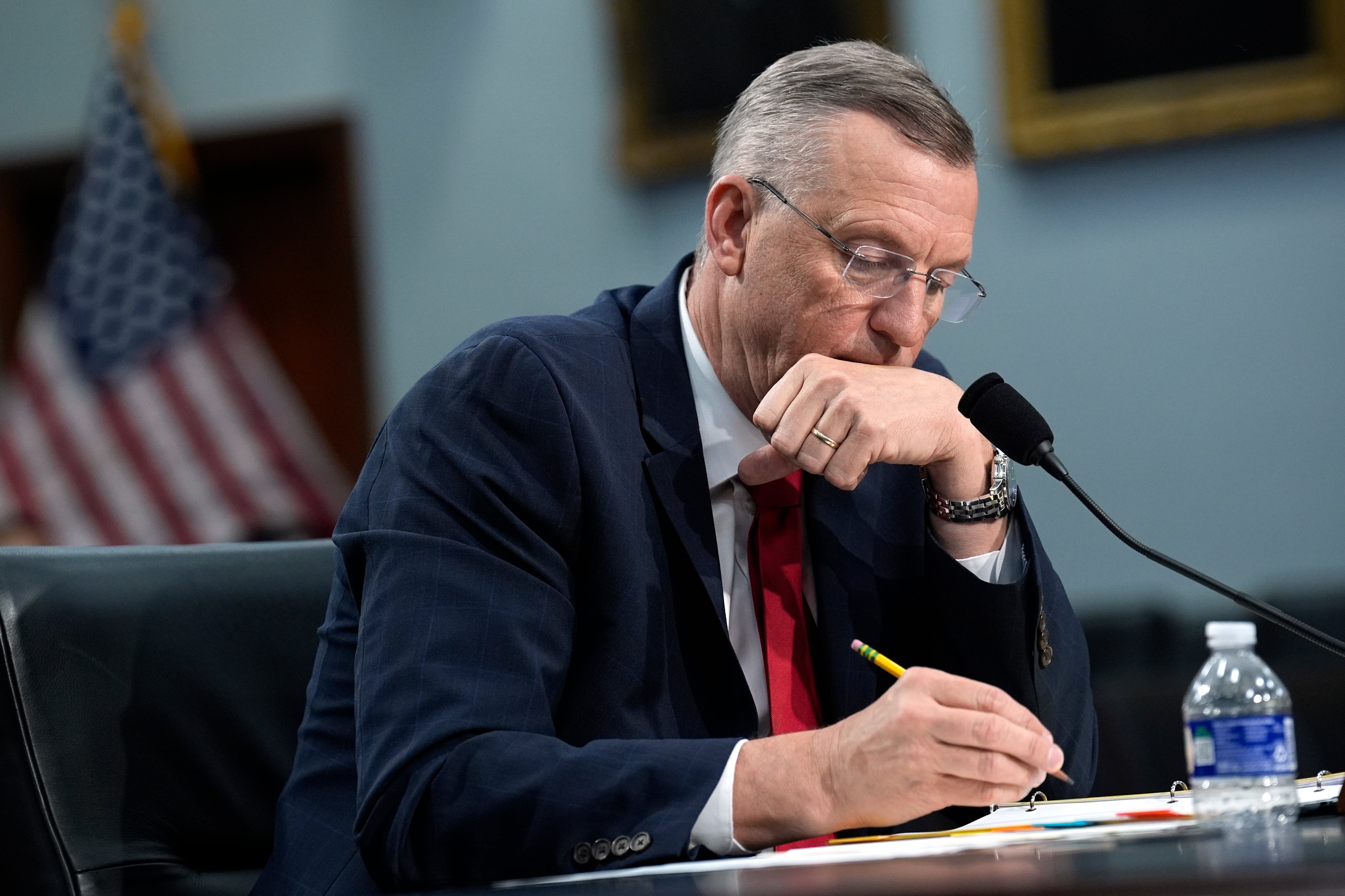KABUL, Afghanistan — Afghanistan’s government expects the U.S. envoy negotiating with the Taliban on ending America’s longest war to visit Kabul “in one or two days” to share developments in the talks that continue in Qatar, a presidential spokesman said Wednesday.
Intra-Afghan talks on the country’s political future are meant to follow a U.S.-Taliban deal, and spokesman Sediq Sediqqi warned that if the Taliban continue to reject discussions with the Afghan government “that would be their mistake.”
A Taliban spokesman said Wednesday the insurgent group and U.S. envoy Zalmay Khalilzad were close to a final agreement on ending nearly 18 years of fighting. The two sides have held nine rounds of talks over the past year.
RELATED
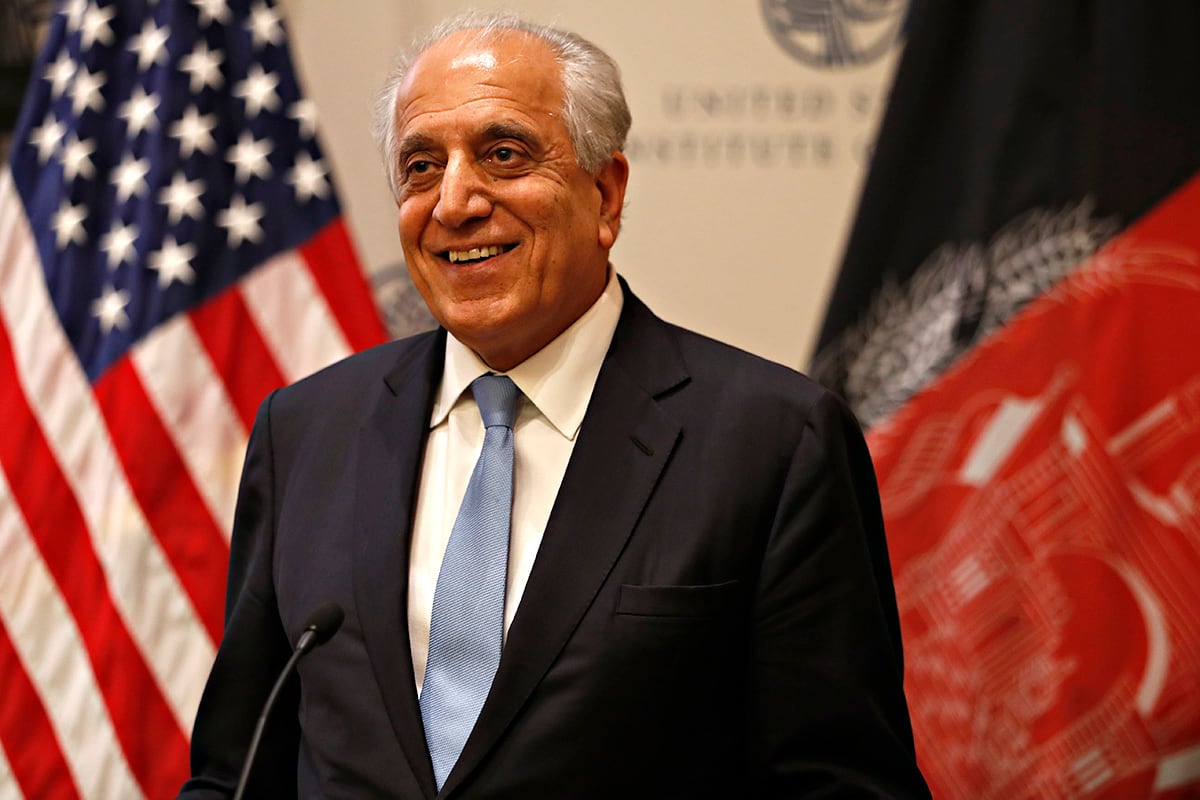
A State Department spokesperson said Khalilzad and his team have made progress on advancing a peace process and negotiations are proceeding but there was no estimate for how long it might take to “close out” remaining issues. The person was not authorized to discuss the negotiations and spoke on condition of anonymity.
The Taliban, which now control roughly half of Afghanistan and are at their strongest since their 2001 defeat in the U.S.-led invasion, have dismissed the Afghan government as a U.S. puppet.
The uncertainty around the U.S.-Taliban discussions, which focus on a troop withdrawal in exchange for Taliban guarantees that Afghanistan will no longer be a haven for global terror groups, have many Afghans wondering what comes next.
RELATED
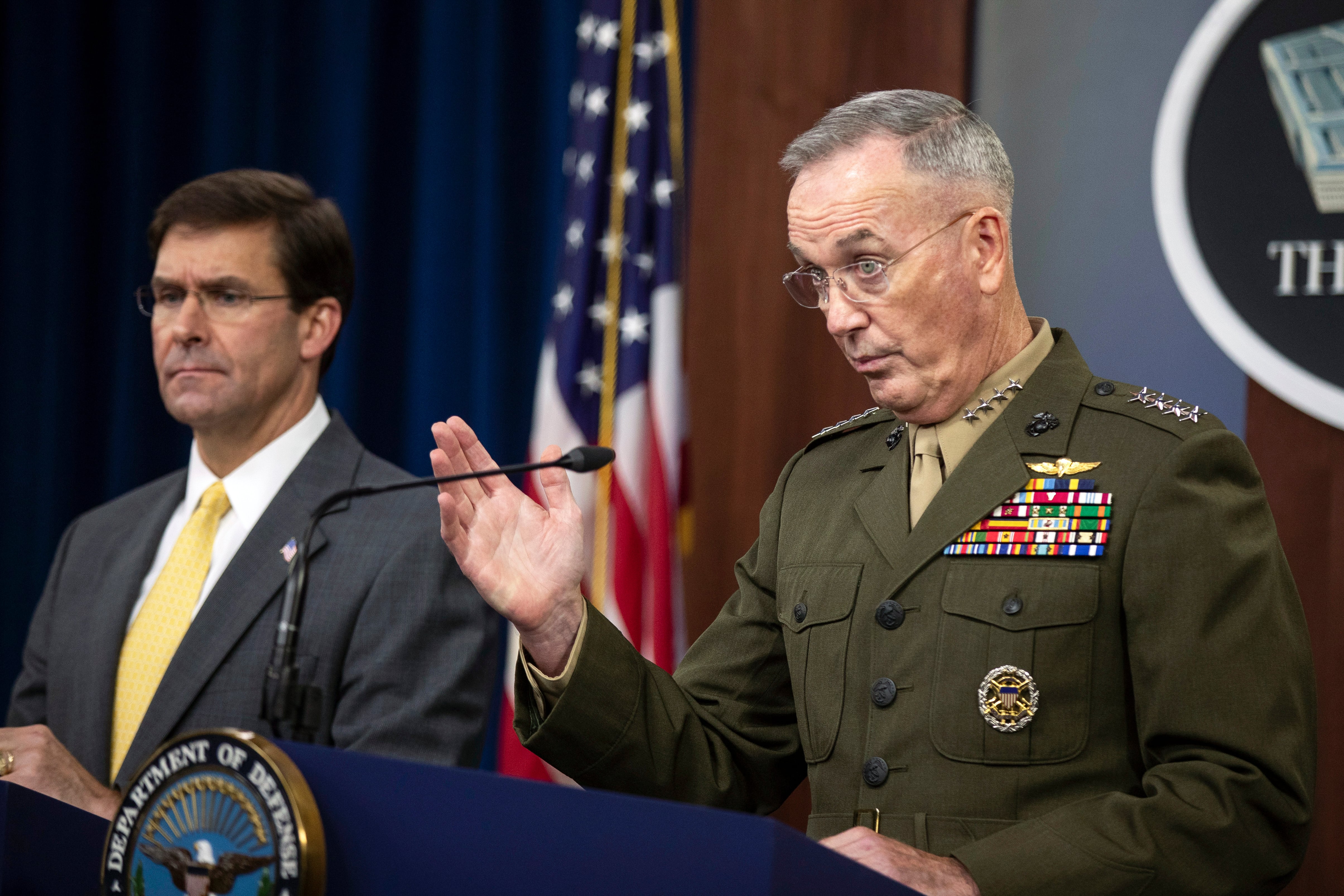
Afghan President Ashraf Ghani has insisted that the presidential election set for Sept. 28 must go ahead as planned to give the government a strong mandate in negotiations with the Taliban, but some candidates and many Afghans question whether the vote will take place or be swept aside in a U.S.-Taliban deal.
Presidential spokesman Sediqqi insisted that the election will not be delayed, calling it a “red line.”
He also said the Taliban are a small group and cannot stand against a nation of more than 30 million people, and the people want the current Islamic republic and not an Islamic emirate — the Taliban’s name for its self-styled government.
“We want the fighting to end. It would be very good for the Taliban to accept this reality,” Sediqqi told reporters.
The U.S. and NATO formally concluded their combat mission in 2014 but some 20,000 American and allied troops remain, conducting strikes against the local affiliate of the Islamic State group and the Taliban and working to train and build the Afghan military.
The Taliban want all foreign forces to leave the country, but the prospect of a rapid U.S. troop withdrawal has created widespread concern that another civil war in Afghanistan could follow as various armed parties jostle for power.
Sediqqi said Afghans don’t want U.S. forces in the country forever but “for the time being there is a need” to support local forces. A troop withdrawal would be based on conditions on the ground, he said, but gave no timeline.
President Donald Trump, who wants to bring home at least some of the 13,000 troops he says remain in Afghanistan before next year’s election, has said it was “ridiculous” that U.S. troops have been in the country for almost 18 years but acknowledged that Afghanistan remains dangerous and “we have to have a presence.”
RELATED
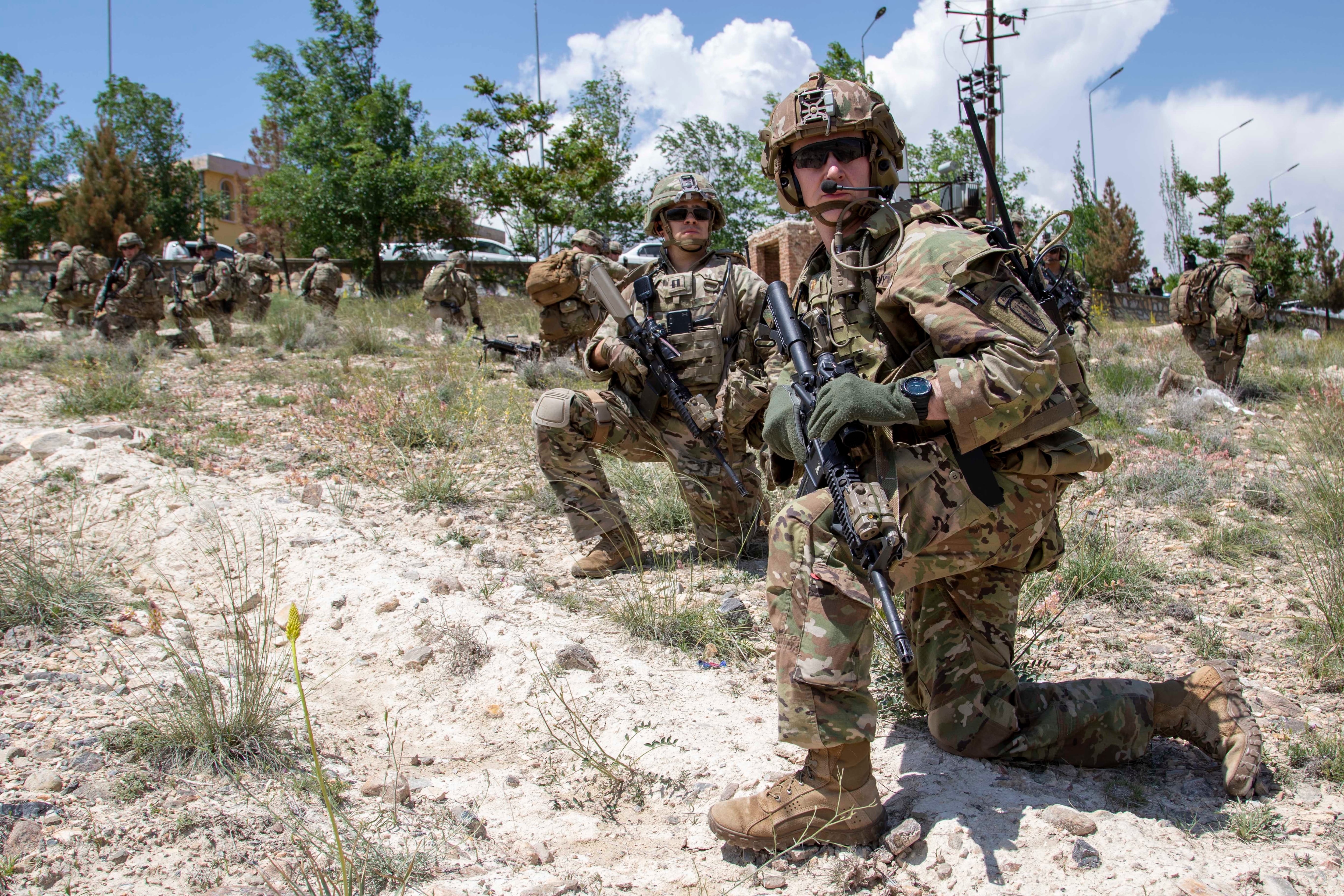
In a speech on Tuesday, Secretary of State Michael Pompeo said Trump’s guidance was this: “We want to get our folks home as fast and in as large numbers as we can, and we want to make sure that never again is terror struck on the United States from that soil. I believe we can and will accomplish both of these.”
Afghanistan was the world’s deadliest conflict in 2018, and the United Nations has said more civilians died there last year than in the past decade. Over 32,000 civilians have been killed in Afghanistan in the past 10 years.
The violence continues. Taliban insurgents on Tuesday night stormed a checkpoint in western Herat province and killed 14 pro-government militia members, police chief spokesman Abdul Ahid Walizada said Wednesday. He said seven others were wounded in Robat Sangi district and that an unspecified number of Taliban fighters suffered casualties.
“Taliban say they want peace and that we are close to a deal ... Should we and Afghans pay attention to what they say, or what they do? It is long past the time for violence and attacks to end,” the U.S. ambassador to Afghanistan, John Bass, tweeted Wednesday evening.
Associated Press writer Deb Riechmann in Washington contributed.


